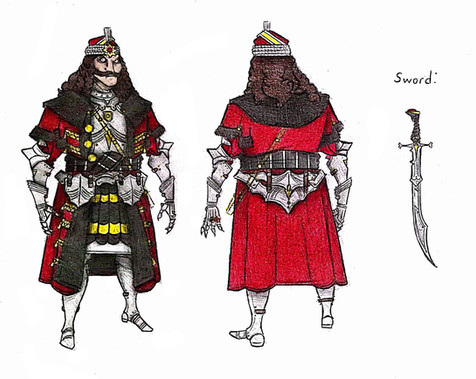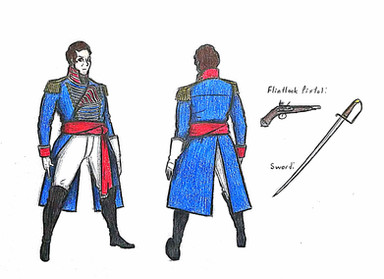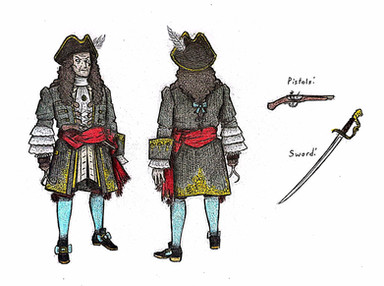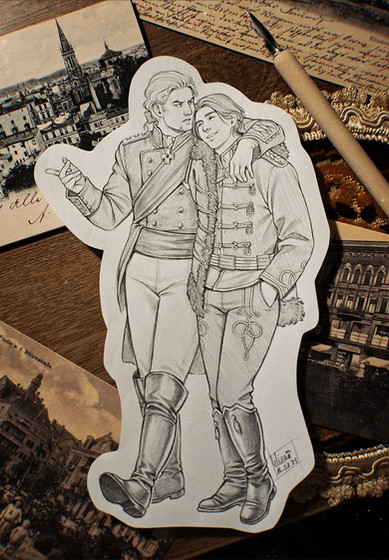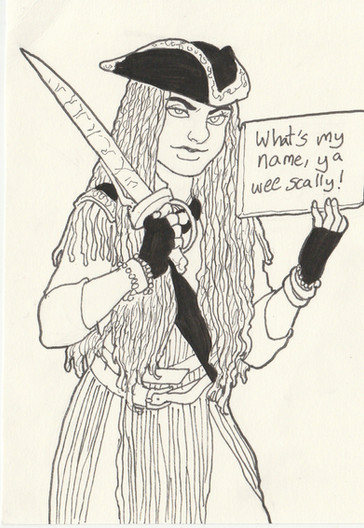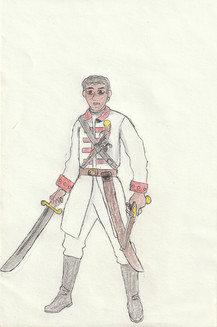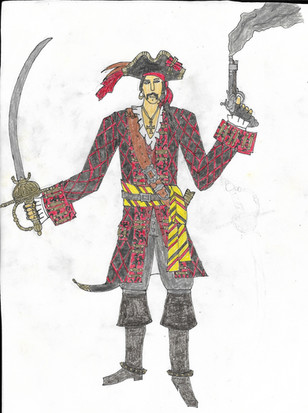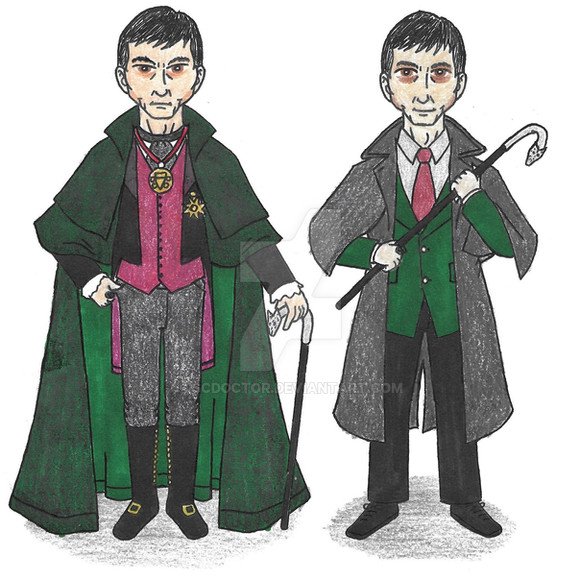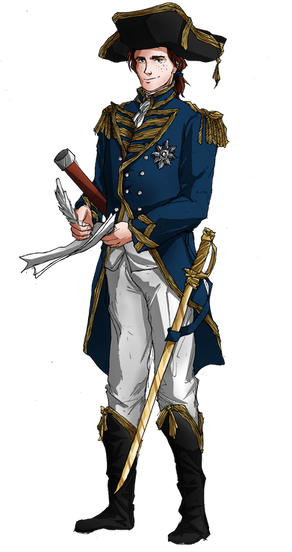HOME | DD
 Avapithecus — Oliver Hazard Perry
Avapithecus — Oliver Hazard Perry

#1812 #american #assassin #creed #fanart #fanfic #hazard #navy #oliver #perry #reference #sheet #templar #war #warof1812 #assassinscreed
Published: 2019-01-12 15:26:42 +0000 UTC; Views: 4571; Favourites: 28; Downloads: 0
Redirect to original
Description
WikipediaName: Oliver Hazard Perry
Born: August 23, 1785; South Kingstown, Rhode Island
Died: August 23, 1819; Trinadad (age 34)
Allegiance: Templars
Bio: Oliver Hazard Perry was the oldest son of Christopher Raymond Perry and Sarah Wallace Alexander, and right from birth, he was primed for a life at sea. His father was a captain in the United States Navy, and both his parents came from long lines of prestigious sailors. With the help of his father, Perry started his career at sea at the age of thirteen, working as a midshipman in the Navy. It was aboard his father's ship, the USS General Greene, that Perry was given most of his training in the ways of the Templar Order that his family was rooted in. Perry's first adventures were mostly escort missions to defend merchant ships sailing in and out of Havana, but he eventually got his first taste of combat off the coast of Haiti during the Quasi-War with France in February 1800. Perry then went on to serve aboard the USS Adams and USS Nautilus during the First Barbary War, and would continue to serve aboard many ships until he was placed in charge of supervising the construction of gunboats in his home state of Rhode Island.
In April 1809, Perry was assigned to command the sloop known as the USS Revenge in order to enforce Thomas Jefferson's Embargo Act, preventing any American ships from trading with foreign nations. He was also sent to rescue an American vessel held up in Spanish Florida around the same time. His prestige and luck failed him in January 1811, however, when the Revenge ran aground off the coast of Rhode Island. Reportedly, when Perry saw that there was no means of saving the ship, he turned his attention to evacuating his crew, and refused to get off the ship until they were all on dry land first. Perry was court-martialed not long after, and was given a leave of absence from the Navy. It hardly put a dent in his high life, however. Perry continued to live well and attend many parties, and even married his wife Elizabeth Champlin Mason. The couple enjoyed an extended honeymoon across New England, and would go on to have five children, one of whom died in infancy.
By 1812, the Templars began to put their newest plan into action. Grand Master Shay Patrick Cormac had set the stage for the United States to declare war on Great Britain, giving the Templars the chance to both gain influence and territory as well as have a cover for their search for a Piece of Eden. While Assassins and Templars had agents on both sides of the conflict, the Assassins mostly took the side of the British and their Native allies. And with that help, the British easily got an early military hold on the Great Lakes, save for Lake Huron. Perry volunteered to take up the defenses against the British at Lake Erie, and was named the United States Chief Naval Officer. Perry would end up clashing against the British in the Battle of Lake Erie in 1813, during which he also fought against the Assassin flagship, the Aquila. While the battle initially seemed to favor the British, and the Assassin Aveza Deryn almost killed Perry while he rode a boat off his sunken ship to reach another one, the tide turned, and the British fleet was defeated. The Assassins were forced to turn tail, failing to take Perry's life, although they did sink the Templar warship, the Morrigan, during the battle. Perry reported his victory to fellow Templar William Henry Harrison, who was now able to march forward to fight the Assassin Tecumseh's forces at the Battle of the Thames and strike down their enemy.
Perry's famous decree of “Don't give up the ship,” during the Battle of Lake Erie would go on to become the words embroidered on the naval flag of his friend and fellow Templar, James Lawrence, who would later be killed by Aveza Deryn. Perry himself was rewarded for his victory at Lake Erie with a Congressional Gold Medal and a promotion to captain, and was also elected an honorary member of the New York Society of the Cincinnati. Following the celebrations and a string of renowned victories, Perry was assigned to a squadron of seven gunboats in Newport in May 1814. While overseeing the outfitting of the commanding ship, USS Java, Perry participated in the defenses of Baltimore and Washington DC. These land battles would end up being the last time Perry ever saw combat. The Treaty of Ghent was ratified in 1815, bringing the War of 1812 to an end all before the Java could even be put to sea.
Perry continued to oversee naval operations after the war, however. He commanded the Java in the Mediterranean Sea during the Second Barbary War. Reportedly, Perry had slapped the Marine Commander, Captain John Heath, when he saw the man as incompetent. Heath ended up challenging Perry to a duel in 1817 after the two were court-martialed for the incident. Heath missed his shot during the duel, and Perry in turn refused to fire back, satisfying Heath’s honor. The following year, Perry was challenged to another duel by Naval Officer Jesse Elliott, a longstanding rival of his. Perry refused the duel, and instead dragged Elliott into a fierce storm of court-martial charges and slander campaigns. Not wanting to get caught in the middle of their fight, Secretary of the Navy Smith Thompson and President James Monroe decided to send Perry on a diplomatic mission to South America in exchange for dropping the charges.
Perry accepted, and he sailed for the Orinoco River in Venezuela aboard a frigate named the John Adams in 1819. Perry's fleet made their way to Angostura, hoping to establish good relations with the newly formed Republic of Venezuela and its president Simón Bolívar. Perry never met Bolívar, however, as the president was out on military campaigns in New Granada. He did manage to sign a favorable treaty with vice president Francisco Antonio Zea, however. Perry's fleet then turned to head downriver, only to be struck with a sudden sickness due to poisoning from the Assassins, though official records will state it as yellow fever. Perry ended up dying just as the fleet pulled into the Gulf of Paria seeking medical assistance, and he was buried in the Port of Spain. His remains were eventually moved back to his home state of Rhode Island, interred in the Old Common Burial Ground.

